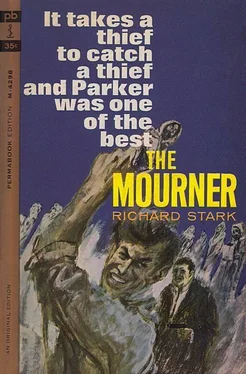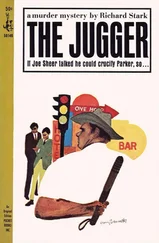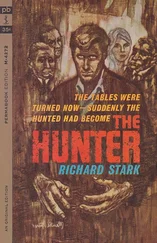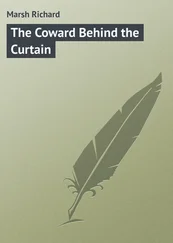“That’s what the sign said, bud,” the old man said.
“I saw no sign,” Menlo protested.
“It’s there. Let’s have your license and registration.”
Impossible. He had neither.
The whole situation was ludicrous; all his high spirits and pleasant anticipations drained out of him. The United States was no different from Klastrava; no different from any other nation in the world. Mighty undertakings were blocked by petty bureaucratic insignificancies.
“Snap it up, bud. I ain’t got all day.”
There was no driver’s license in his pocket, no automobile registration. He had only two things there: a wad of money, and the derringer. He thought quickly, trying to decide which to use.
The money. The money first. If that failed, then the derringer.
Menlo reached into his pocket, peeled one bill free, and handed it to the old man. The old man looked at it, frowned suddenly like a thundercloud. “What’s this?”
It was a fifty-dollar bill.
“My license and registration,” Menlo replied. He smiled tentatively.
The old man squinted, studying the bill, and then Menlo’s face. He peered into the back seat, then looked the car over, front to back. “Now, what in hell have we got hold of here?” Then, with a surprisingly fast motion, his right hand snapped back, flipped open the holster flap, and dragged out an old .38-caliber Colt Police Positive Special. He took a quick step back away from the Pontiac. “Now you get on outa there, bud. You move slow and easy.”
Menlo’s hand started to inch toward the derringer, but the old man’s trigger finger was white-knuckled with strain. The barrel of the pistol aimed at Menlo’s head seemed as big as the entrance to a railroad tunnel. Meekly, cursing himself for a fool, Menlo clambered out of the Pontiac.
The old man said, “Fat one, ain’t you? Turn around. Lean up against your car with your hands over your head.”
Menlo did as he was told, knowing the posture the old man wanted. It was standard procedure the world around. Leaning forward off balance, the hands higher than the head, supporting the weight of the body. The position of the suspect when the police officer wants to search him for weapons. Which meant that now the derringer was to be taken from him.
How long would it be before this wretched old man took it into his head to open the two suitcases on the backseat?
And all this for driving thirty-two miles an hour on an empty street.
The old man was muttering. “I thought you was one for the judge, but now I ain’t so sure. Might just be there’s a poster out on you.”
The old man began to pat him, searching him. The first thing he came to was the wallet in Menlo’s hip pocket. He removed it, and stepped back. Menlo heard him whistle softly when he opened it; it contained money, nearly a thousand dollars in hundreds and fifties.
“Well, well, well,” the old man said. “What do you know about that?” There was a pause and then a different tone. “Now, what the hell is this?”
Menlo wondered too. It hadn’t, whatever it was, sounded like something the old man was pleased over. Menlo wondered where the people were. The sun was shining brightly, and this was the main street. Two cars had already gone by since he’d been stopped, both angling wide around them without stopping. But no crowd had gathered on the sidewalk. He couldn’t understand it. He didn’t know that in a speed-trap town, motorists often get angry at policemen and policemen usually retaliate with a little extra humiliation such as a frisking, that in any such town, no matter how dreary, the sight of a policeman frisking a tourist is old stuff.
The old man kept mumbling to himself, and then all at once he shouted. “A Commie! A goddamn Commie!”
Then Menlo realized what the old man had found. He hadn’t bothered to remove his official identification cards, and these were what the old man had been mumbling over, trying to decipher the foreign printing, until finally some sign or symbol had given the game away.
“Well, well, well!” cried the old man, growing excitement in his voice. “I guess maybe it’s the Federal Bureau of Investigation that’d like you, bud. A big-shot Commie, no license or registration, carrying around bribe money. I guess the Federal Bureau of Investigation won’t mind seeing you one bit. So you just march, bud. Get on away from that car you stole, and march. To your right. The jail’s just a block away. I’ll come get your car and baggage after I got you locked up good.”
Menlo marched ahead of him down the street to the jail, a one-story frame structure with a blank façade, save for one small barred window and a door that had Police Headquarters lettered in gold on the glass.
Within, it looked like a set for a Western movie. There was a central corridor, with an office on the right containing, among other things, a rolltop desk. The door on the left was shut, and the old man had Menlo continue straight on down past it to the end, to a barred door.
It was while the old man was unlocking the door that he took his eyes off Menlo for just a second. It was then that Menlo sneaked the derringer from his pocket and fired both bullets in the old man’s head.
First, he took back his wallet. Then he removed the Police Positive from the holster and tucked it inside his belt, on the left side, butt forward, where it was well concealed but he could get at it quickly. Finally, he dragged the old man’s body through the barred doorway around to the other side of a desk to delay its discovery. The cells were back here, but they faced the other way. In one of them someone, probably a Negro, was singing softly and mournfully to himself about nothing in particular.
Menlo was feeling very strange. Until this moment all of his activities had been directed against the criminal elements of society, the outlaws. Kapor. The Outfit. Parker and McKay. He had been betraying his Ministry, true, but that hadn’t bothered him particularly. His activity against the state had been, in a way, indirect, a sin of omission rather than commission: he was simply not returning with the money. But now he had shot down a police officer in the performance of his duty. Suddenly the break with his past was total, complete, irrevocable, much broader and deeper than he had ever imagined. Tendrils of fear began tugging at his mind and making his knees unreliable.
He had to be strong. He had made his choice, and so far he had triumphed. Whatever the obstacles, he must continue to prevail. The rules were changed now, and so was he.
He was puffing from exertion by the time he’d finished. He closed the barred door again, paused to catch his breath, and forced himself to walk casually and unconcernedly out of the building. He would not be eating lunch at the diner just ahead. He would not be eating lunch at all today.
The next major city, according to the map, was Columbia, South Carolina. He could risk driving the car that far, but there he would abandon it. He would travel the rest of the way to Miami by train. It was unlikely there would be a plane.
He got into the Pontiac, feeling the bulge of the pistol against his left side as he sat down. He started the engine, backed the car, shifted, avoided the angle-parked police car, and drove sedately out of town at twenty miles an hour.
It looked like a wedding cake. Menlo peered out at it from the cab’s rear seat, his eyes squinting somewhat from the brightness. It was Sunday, and the sun shone bright on the Sunways Hotel, pink and white, with a great white fountain out front that looked like marzipan. The splashing water made a cool sound.
“I hate this lousy town,” said the cab driver, waiting to take his turn at the canopied entrance.
Читать дальше












